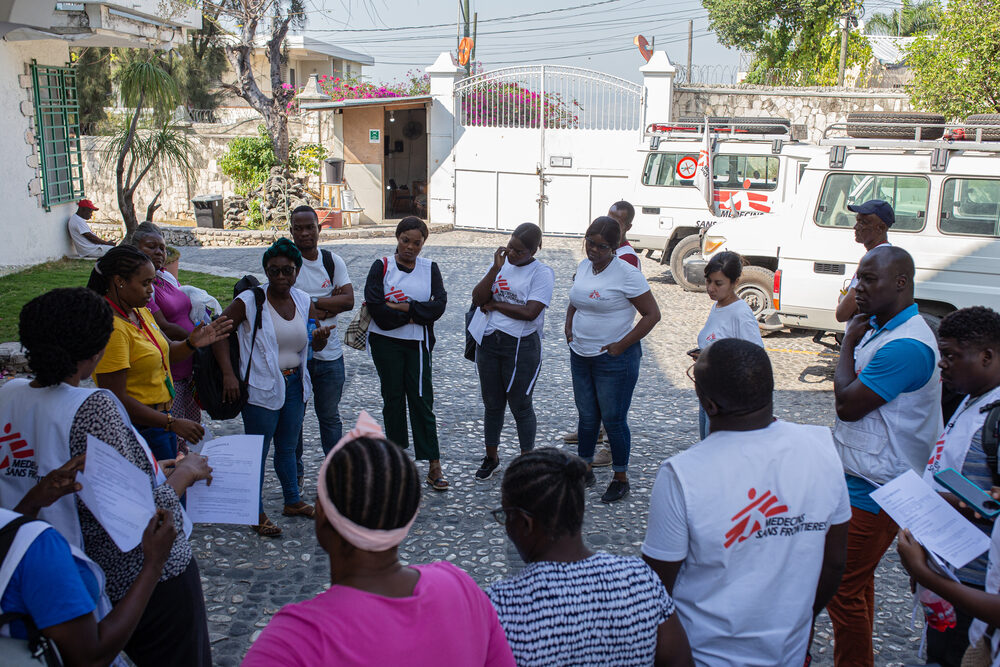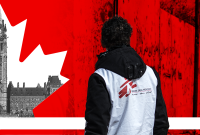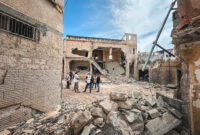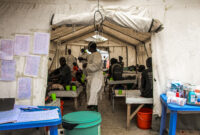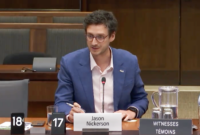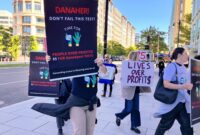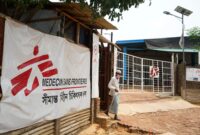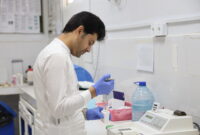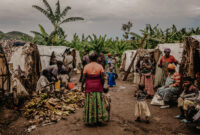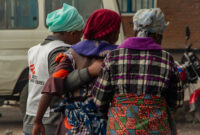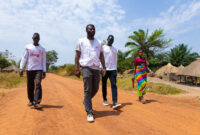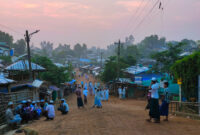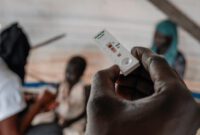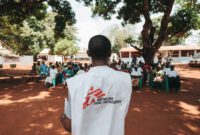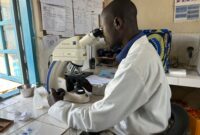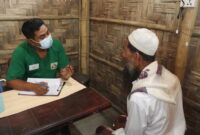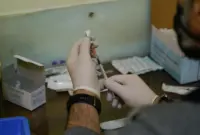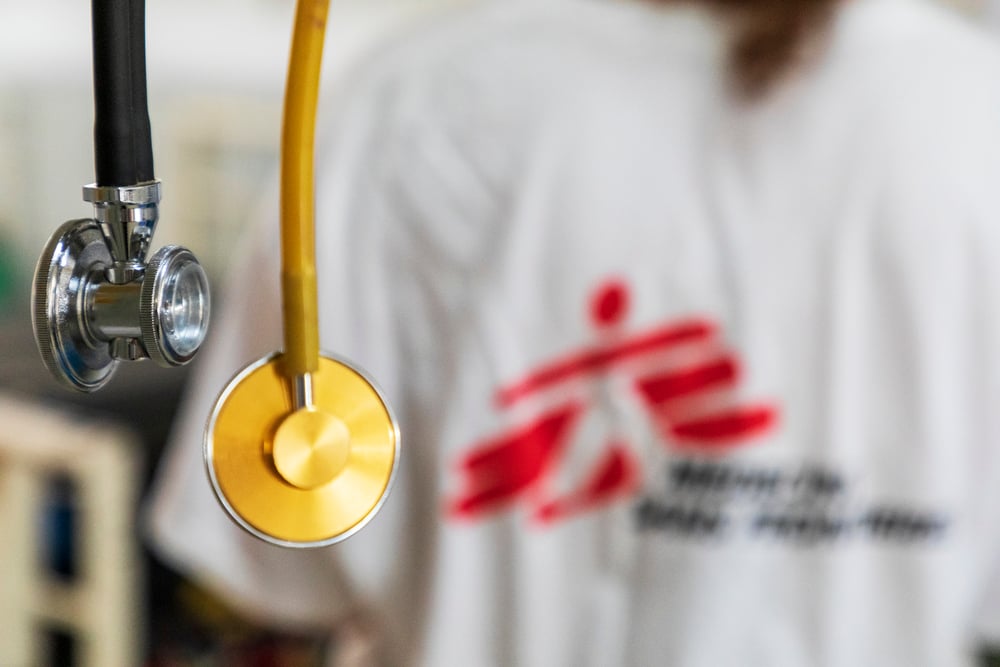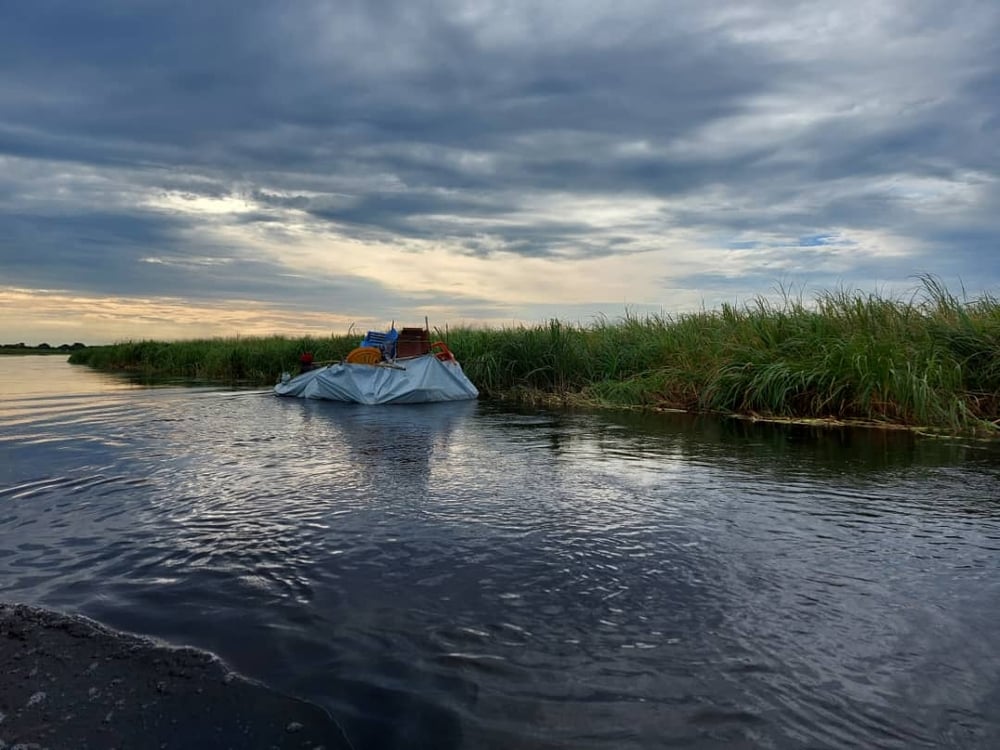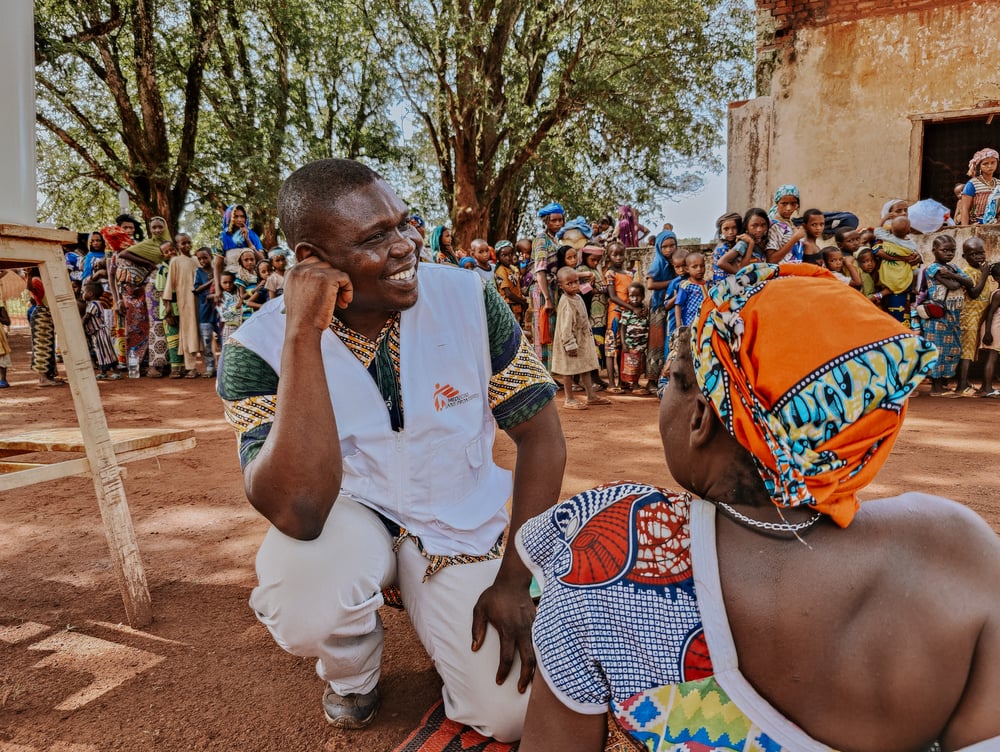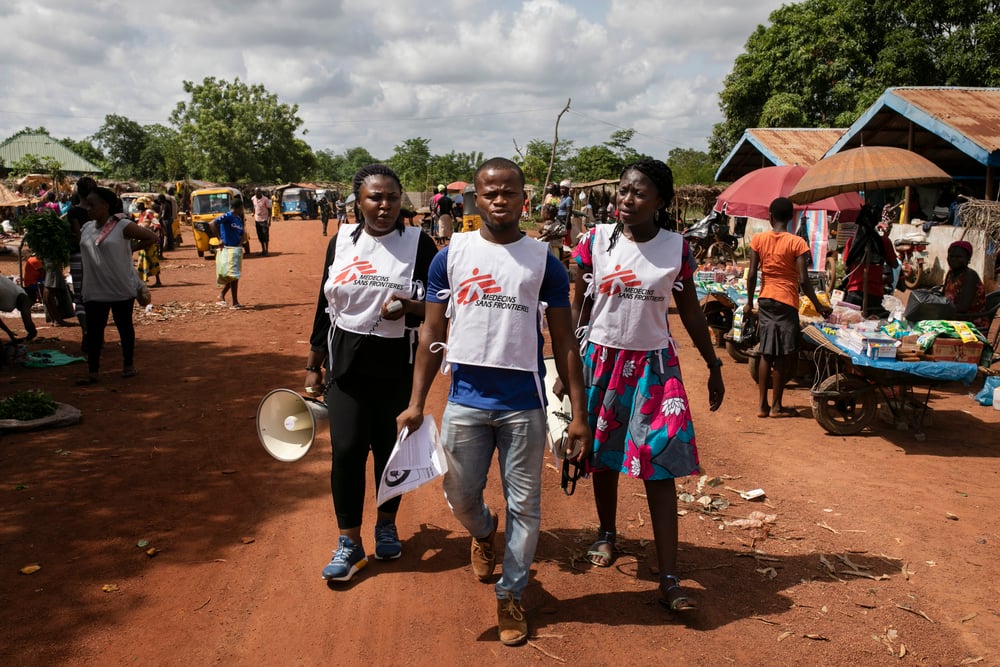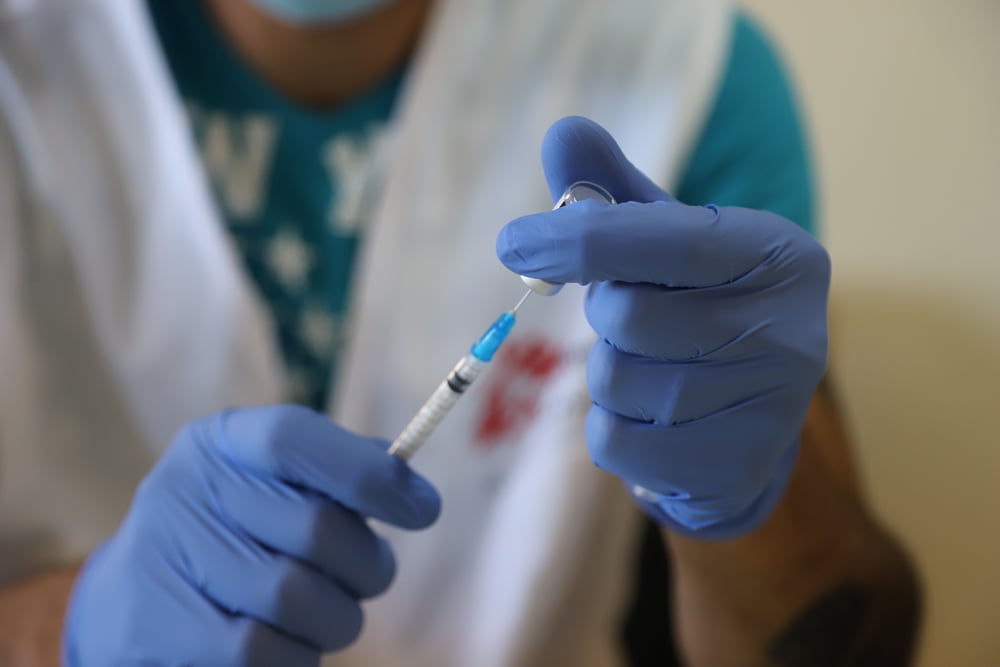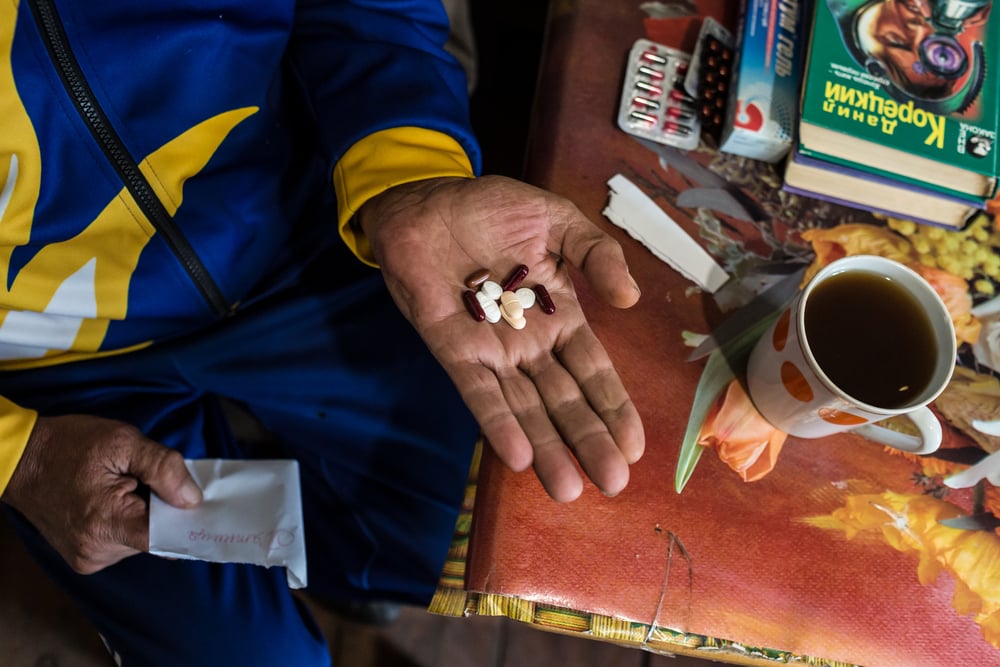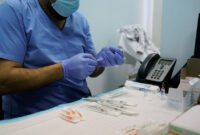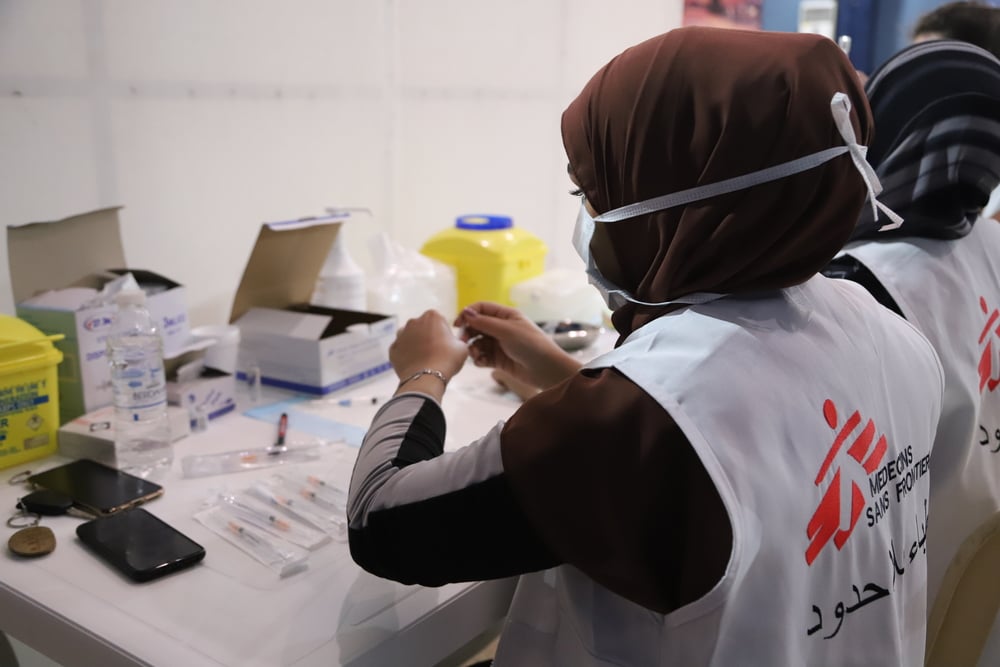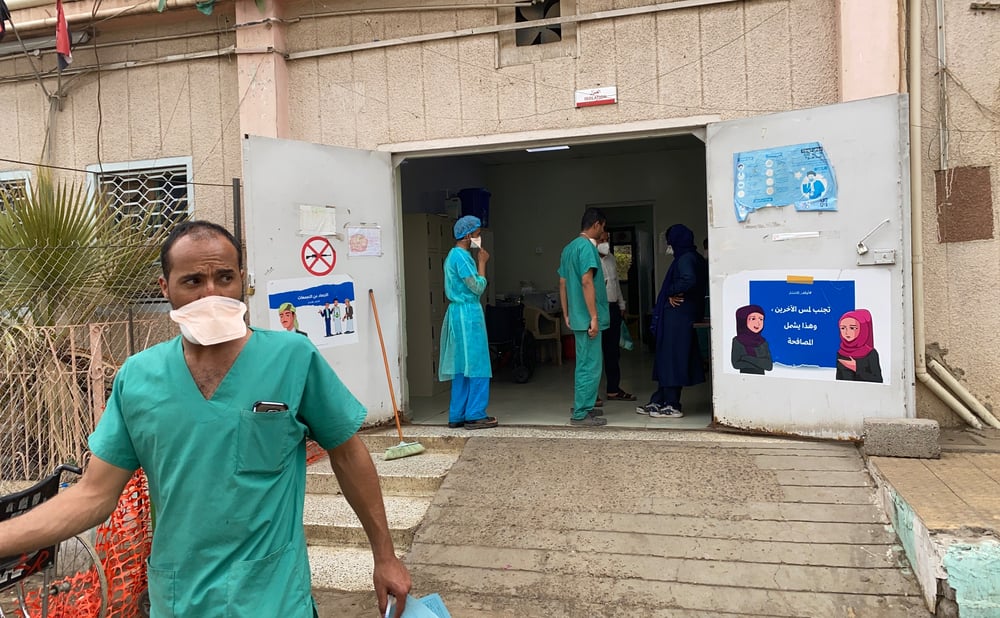Haiti: How Canada and others can help address some of the country’s many overlapping crises
As people in Haiti endure multiple complex emergencies, a more effective approach to humanitarian assistance is urgently needed
By Michael Lawson, Humanitarian Affairs Officer for MSF Canada
“We have no water, we have no food. We have nothing.”
That is how one man standing outside a mobile medical clinic run by Doctors Without Borders/Médecins Sans Frontières (MSF) in Port-au-Prince, the capital of Haiti, described the situation he and his family had been living in since being forced from their home two months earlier. We were speaking in the courtyard of a small church, where he and others from the city’s Croix-des-Bouquets district had been sheltering since fleeing attacks by armed gangs against their neighbourhood.
“Today is the first time we have seen anyone or received any assistance,” he said of the MSF clinic. “No one else has come here.”
With more than 900 people sleeping in a cramped, roofless space with no working toilets, the man said that living conditions in this unplanned temporary settlement were not suitable for people in vulnerable circumstances, gesturing to some of small the children, pregnant women and elderly people waiting nearby. “We are completely alone,” he said. Others in the courtyard said they had no other options but to seek refuge there.
“Armed men came and took away our homes,” said one woman. “If we have to leave here, there is nowhere else for us to go.”
Another woman, who was five months pregnant, said that she had been forced to sleep on the courtyard’s rough ground since armed men had burned her home down. Her consultation at the MSF mobile clinic that morning was the first time she had been able to speak to a healthcare practitioner about her pregnancy since then; she said it was unsafe for her to travel in search of care.
The UN estimates that more than 127,000 people in Port-au-Prince are currently living in a state of displacement due to the activities of armed groups, who have been using violence and terror to gain and maintain control of territory, both in the capital and elsewhere across the country.
But despite the numbers of people affected, humanitarian assistance for those forcibly displaced has been insufficient. Formal camps for internally displaced persons (IDPs) are lacking, and few aid agencies are present in many places where the needs are highest.
A country facing multiple crises at once
Unfortunately, displacement due to violence is not the only significant humanitarian challenge facing Haiti, which is experiencing several complex and overlapping emergencies at once. Water and sanitation systems, for example, have collapsed in many parts of the country, increasing people’s exposure to deadly diseases such as cholera — an outbreak of which overwhelmed the already limited health system in Haiti when it began last September, and has recently been resurging once again. Overall, an estimated 5.2 million people (out of a population of 11.5 million) are in need of humanitarian assistance in Haiti, and 4.9 million people face acute levels of hunger, according to the World Food Programme.
As one of the only operational providers of emergency medical care in the country, MSF is also particularly concerned about people’s lack of access to basic health services, including care for survivors of sexual and gender-based violence (SGBV). Data from MSF’s dedicated SGBV clinics indicates that the number of cases of sexual violence has reached alarming levels in Port-au-Prince and beyond.
Not enough attention on humanitarian needs
By almost every measure, Haiti is in the grips of a severe humanitarian crisis, one that urgently requires a comprehensive international emergency response. But with high levels of insecurity making many aid agencies reluctant to operate in the worst-affected areas, what little international attention Haiti receives has often been more focused on the country’s apparent inability to curb armed violence than on finding ways to meet humanitarian needs.
The challenges of delivering humanitarian assistance amid the deteriorating security situation in Haiti – and in Port-au-Prince in particular – should not be underestimated. Just last week, a group of armed men violently entered MSF’s hospital in the Tabarre neighbourhood of the capital and abducted a patient, forcing us to suspend activities at the facility (though our medical programs elsewhere in Port-au-Prince and across the country remain in place).
Earlier this year, MSF had to temporarily close its hospital in the Cité Soleil neighbourhood due to violence outside its gates, which is on the boundary between two separate gang-controlled areas. “We are looking at a war scene just metres away from our hospital,” said MSF’s medical advisor at the time. Areas of the capital once considered safe have increasingly come under attack. Armed groups have used extreme violence, including sexual violence, against civilians as they vie for control of territory and the economy.
But humanitarian assistance is desperately needed. Millions of Haitians lack access to clean drinking water, healthcare or enough food to eat. Cholera cases are once again rising quickly, and a near-total lack of functioning water and sanitation systems in Port-au-Prince and elsewhere make the spread of water-borne diseases a persistent cause for alarm. At MSF’s mobile clinics in Port-au-Prince, our medical teams are seeing significant levels of scabies — a contagious skin condition designated as a Neglected Tropical Disease by the World Health Organization — which reflects a lack of access to clean water or basic health services. Women, children and other people affected by the shocking levels of sexual violence in the capital and elsewhere have few places to turn for care or safety. Although MSF’s dedicated SGBV clinics in Port-au-Prince and Artibonite provide crucial medical and psychosocial care for people who have survived violent sexual or gender-based attacks, these are difficult for people trapped in violence-affected neighbourhoods to reach. There are also virtually no shelter, economic or legal support programs to which our medical teams can refer patients for whom it is unsafe to go home. Although there are numerous organizations in Haiti, including many local ones, who can provide such services, a lack of predictable or long-term funding for such initiatives leaves many vulnerable people at risk.
What Canada can do
Changing that, however, won’t be possible without a serious rethink on the part of countries such as Canada about how they can help. Although MSF’s ability to operate in Haiti is independently funded by private donations, most other humanitarian response organizations working there – and the local organizations who depend on them – rely on the financial support of donor governments in the international community. For emergency activities to be scaled up in a way that can actually address the needs in the country, that support must move away from a focus on short-term and temporary projects towards longer-term initiatives that can reliably meet the continuous humanitarian gaps.
Encouragingly, Canadian parliamentarians have recently reached a similar conclusion. In a recent report entitled The Human Rights Situation in Haiti, members of Standing Committee on Foreign Affairs and International Development, made up of MPs from all the main parties in Canada’s House of Commons, included a recommendation that the federal government “not only focus its aid to Haiti on immediate humanitarian needs, but develop a long-term strategy for the country with predictable and long-term funding and outcomes. The Government of Canada should also leverage its position as one of Haiti’s key humanitarian partners to persuade the international community to increase humanitarian and development assistance.”
Canada does indeed have an important role to play in addressing the many challenges currently facing Haiti – a country not only in our hemispheric backyard, but one with which Canada has a long and complex history of involvement – and the Standing Committee’s recommendation highlights one of the most crucial ways that Canada can take necessary action. Short-term assistance will not allow those best placed to meet Haiti’s most pressing humanitarian needs to build the presence and networks they require to operate in such a complicated environment. Canada can address this directly through a long-term strategic approach to humanitarian assistance, and use its global standing to encourage fellow members of the international community to do the same.
Action is needed now
MSF has been present in Haiti for more than 30 years and fills a critical gap in a country where access to free-of-charge and functional health services would otherwise be close to non-existent. Our way of working – as an independent, neutral and impartial provider of medical care – has made it possible to establish dialogue with a variety of stakeholders in the country, which has frequently allowed our teams to access at-risk communities and operate safely in some areas where others can’t. But we also know first-hand how the already unstable security situation can shift rapidly in Haiti, and how our duty of care to keep our staff and patients safe limits our abilities to reach all areas where help is needed most.
We see first-hand, however, the immense human needs in Haiti, and the struggles faced by our patients and others who have been left without even basic assistance amid a crippling series of health and humanitarian crises. And we know from our own experience that establishing a committed and effective humanitarian presence can not only help alleviate suffering in the places we can reach, but can itself create conditions in which a safer space for increased humanitarian activities are possible.
That’s why it is urgent for Canada’s government to heed the recommendation of the Standing Committee on Foreign Affairs and International Development, and prioritize not only an immediate humanitarian response, but also ensure that Canada and other donors remain committed to long-term and predictable humanitarian assistance that can address Haiti’s most urgent and pervasive needs.
Back in the church courtyard, that point was echoed by another man, who wanted to make sure that the outside world does not remain indifferent to his plight and that of his neighbours. “Tell everyone what is happening here,” he said. “Tell the international community that people in Haiti are having to leave everything they have, and are forced to stay in a place that isn’t theirs. They are sleeping under the rain, and the world needs to know about it.”
